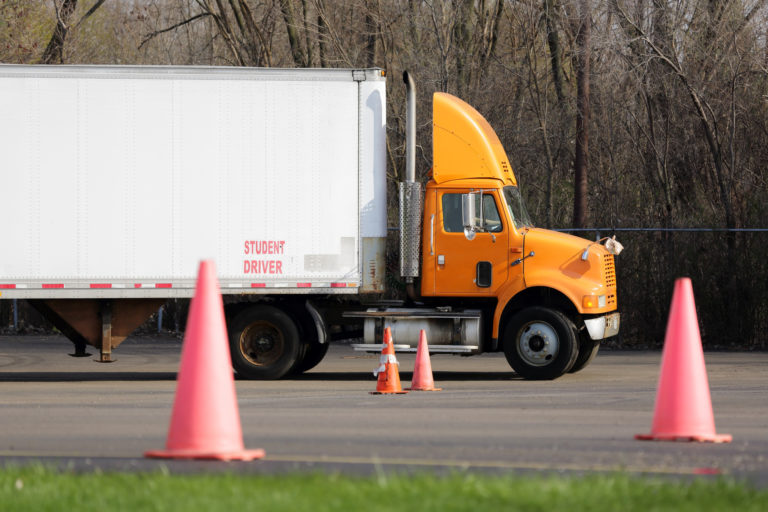
Two Ontario trucking school operators convicted of falsifying mandatory entry-level training (MELT) records have avoided jail time after a jury found them guilty of fraud over $5,000 and uttering a forged document.
Following a five-week trial, Gurvinder Singh, 69, and Gurpreet Singh, 37, were each handed a conditional sentence of two years less one day and ordered to complete 200 hours of community service. The Crown had sought five-year prison terms, but the court in an Oct. 29 ruling opted for conditional sentences, requiring both men to remain under house arrest for the duration of their sentence.
The convictions stemmed from fraudulent MELT training each offered to students seeking a Class A commercial driver’s license (CDL). Between January 2019 and May 2021, the two men operated unregistered truck driving schools that were not authorized to deliver MELT programs. Instead of providing the full curriculum required under Ontario’s licensing standards, they offered abbreviated courses, often in Punjabi, to mostly South Asian newcomer students.

Representatives of commercial truck training schools in the province hoping for a stricter sentence, were not pleased with the sentence.
Training school associations express concern
Philip Fletcher, president of the Truck Training Schools Association of Ontario, has been keeping an eye on the case and was hoping for a “more substantive punishment.”
“This is not as severe punishment as we were hoping for that type of malfeasance,” he told trucknews.com.
Narinder Singh Jaswal, president of Ontario Commercial Truck Training Association, was also hoping for a strong message to be sent.
He said his members spend money to ensure proper infrastructure and training and then such operators find ways to defraud the system. He called for better transparency into the licensing system.
Uploaded false information into ministry database
During court proceedings, evidence presented showed the pair paid Charanjit Deol and her husband, who operated a registered private career college authorized to offer MELT, for unlawful access to the Ministry of Transportation’s database. The Deols uploaded false information confirming students had completed the MELT program, allowing them to book road tests and obtain Class A licenses, according to the court ruling.
The offenders paid between $1,200 and $1,800 per student for the fraudulent uploads, transferring about $68,000 from Gurvinder Singh and $80,000 from Gurpreet Singh. Each charged students $4,000 to $5,000. Gurvinder had about 45 students and Gurpreet had about 47 students.
The men also paid interpreter Hanifa Khokhar up to $400 per student to help some candidates cheat on written knowledge tests.
Pleaded guilty to fraud
Prior to this trial, each of the Deols and the Khokhars pleaded guilty to fraud over $5,000 and the remaining charge of uttering a forged document was withdrawn.
Charanjit Deol, who uploaded false information on the MTO’s database fraudulently confirming that the offenders’ students had complied with MELT, received a 12-month conditional discharge, and her husband, who owned the private career college and allowed the fraudulent uploads on the MTO’s database, received a conditional sentence of two years less a day followed by 12 months probation.
Khokhar received a conditional sentence of two years less a day followed by 12 months probation for her fraudulent interpretation services. Her husband, who assisted her and was responsible for collecting the money, received a conditional sentence of 18 months followed by 12 months probation.
Students satisfied with instruction
Although the training fell short of MELT standards, most students testified they were satisfied with the instruction, describing both men as attentive and helpful. One former student praised Gurpreet Singh, saying he “brought us from zero to hero.”
The court acknowledged the seriousness of the fraud and its potential risk to public safety but noted there was no evidence of crashes, injuries, or revoked licenses linked to the scheme. The judge also pointed out that neither offender had a criminal record and that their actions, while financially motivated, were not purely driven by greed.
Victim impact statements from the Ontario Ministry of Transportation, Canadian Trucking Alliance and Ontario Trucking Association underscored how fraudulent training undermines public confidence in driver licensing and endangers road safety.
Credit: Source link







